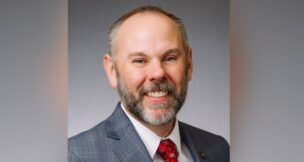S.C. first state in U.S. with Internet Safety Pledge
Staff //June 20, 2019//
South Carolina has become the first state in the country whose governor and attorney general have signed a pledge promising to protect the state’s children from internet crimes.
At a ceremony Wednesday in Columbia, S.C. Gov. Henry McMaster signed the Children’s Internet Safety Governor’s Pledge. Although he was out of state and not able to attend the news conference, S.C. Attorney General Alan Wilson signed the pledge as well.
Internet crimes against children can involve pornography, exploitation or human trafficking through the use of the Internet, social media sites or file sharing sites.
About two dozen members of the attorney general’s office Internet Crimes Against Children Task Force, child safety advocates and members of state law enforcement attended the ceremony at the Statehouse.
Gov. McMaster formed the task force in 1998 when he was the state attorney general.
“The danger is that the children are too young to recognize that they’re being entrapped,” he said. “They’re being lured into things that will change their lives.”
McMaster said South Carolina is the first state in which the governor and attorney general have signed a pledge to protect children from internet crime. He said cooperation among several state agencies to combat internet crime is invaluable.
“We do have the tools that they don’t have in other places,” he said. “Namely, we have the best law enforcement in the United States. They coordinate with each other. We have a training academy — most states don’t have one of those. And also our state has a statewide grand jury that is identical to a federal grand jury that our law enforcement can use. Our attorney general has prosecutorial power for every crime in the state. In many states, the attorney general cannot do that. So that gives us weapons that they don’t have in other places.”
In a process developed during the last 20 years, 113 local, state and federal agencies now work together on the task force, according to the attorney general’s office.
“We are letting people know that we’re out there monitoring these networks and social media networks, file share networks,” said Kevin Atkins, commander of the Internet Crimes Against Children Task Force. “We’re doing what’s called ‘to catch a predator’-type operations. So it’s important for people not to forget that we’re out there.”
Atkins said the number of arrests have increased every year since the task force was founded. In the fiscal year of 2018, the task force made 210 arrest, a 366% increase from 45 arrests in 2014.
Internet crimes against children can lead to serious consequences for victims.
“The internet is often used by human traffickers to target vulnerable youth. They engage with them. They will groom them, manipulate and then sexually exploit them,” said Kathryn Moorehead, director of the Human Trafficking Task Force run by Wilson’s office.
Members of the ICAC Task Force say part of their mission is to educate everyone involved in a child’s life.
“What we’re trying to do is bridge the gap between children and their parents because we know that there’s a big generational difference between the way that the parents grew up and the way that our kids are growing up today,” said Joe Ryan, who presents the task force’s education programs across South Carolina.
“We talk to any organization that will have us,” he said. Education programs are offered for children and adults in schools, churches, community groups, after-school groups and libraries. Programs are also offered for community leaders, teachers and school counselors and administrators.
Ryan’s education program reached more than 58,000 people in fiscal year 2018. He and his team gave 524 digital safety presentations across the state.
McMaster is encouraging governors of other states to sign similar pledges to enforce existing laws, champion public policies preventing sexual exploitation, examine the public health impact of internet pornography and encourage partnerships that promote safe Wi-Fi networks that voluntarily filter pornography.
The governor’s pledge is modeled after the bipartisan Children’s Internet Safety Presidential Pledge signed by President Donald Trump when he was a presidential candidate.
P















